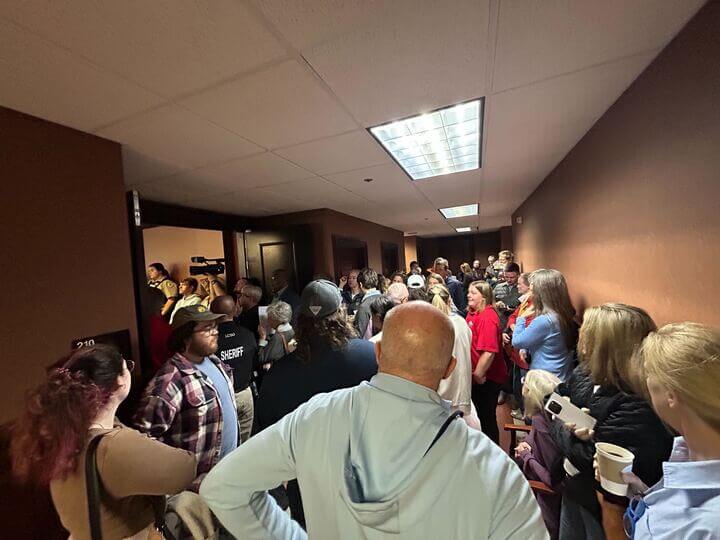

Editor’s note: This essay is part of Mississippi Today Ideas, a platform for thoughtful Mississippians to share fact-based ideas about our state’s past, present and future. You can read more about the section here.
A recent public hearing over a proposed asphalt plant near Taylor in Lafayette County played out in a familiar way.
Neighbors, given a few minutes each to speak from a podium in front of a large audience, voiced heartfelt concerns about the proposed plant’s potential impact on noise, dust, water safety and the loss of rural character. The developer, in turn, defended his right to invest and create jobs. Reporters framed the meeting as a “heated exchange,” a “fight,” a “debate.”
If you’ve ever attended a public hearing or a “town hall meeting,” this pattern will sound familiar.These meetings, meant to demonstrate transparency and community input, too often devolve into spectacles of frustration.
They invite people to perform their opinions rather than exchange their perspectives. Participants speak in turn, into a microphone, facing officials who cannot respond and neighbors who cannot reply.
It’s civic theater, not civic dialogue.
While a public hearing may seem as if it is open to all, it truly only includes those brave enough to write and deliver an oration that they hope will meet with the crowd’s approval – perhaps censuring themselves in the process, perhaps grandstanding to win applause.
In any event, it cannot ever become an authentic space to understand the full breadth and depth of a community’s opinions. It also normally occurs just before elected officials will decide a matter – hardly a moment that allows them to incorporate input meaningfully into their decisions.
Public hearings are designed for recordkeeping, not relationship-building. They are procedural necessities, not spaces for understanding. They ask: “Did everyone get a chance to speak?” when the more important question is, “Did anyone really listen?”
Take the meeting on Oct. 20: Citizens opposing the plant, many of them longtime residents, spoke of family farms, clean air and the peace of their community. The developer spoke of economic opportunity and compliance with regulation.
Both sides raised legitimate points rooted in values we all share: safety, stability and stewardship of the land. But the structure of the hearing forced those shared values into competing positions.
Instead of How can we protect our community while allowing responsible growth?, the discussion became Whose side are you on? It turned a complex issue into a binary choice.
There are better ways. Across the country, communities facing similar land-use conflicts have experimented with dialogue-based models of public deliberation – charrettes, stakeholder dialogues and consensus-building workshops that focus first on understanding before decision-making. These formats help residents uncover shared interests and explore creative options before opinions calcify into camps.
What if Lafayette County tried something like that?
The next meeting on Nov. 3 could still follow legal procedure while making space for genuine listening.
Imagine smaller, facilitated conversations where developers and residents alike articulate what they value most about this place and what they fear losing. Imagine supervisors who not only hear concerns but reflect back what they’ve understood and how it informs their next steps.
Public hearings will always be part of the process, but they should not be the only process. When we reduce democracy to a microphone and a timer, we mistake participation for engagement and hearing for listening.
Lafayette County deserves a model of governance that goes beyond compliance to connection. It could be different.
Graham Bodie is a resident of Oxford who teaches people to listen across their differences. He can be reached at gbodie@gmail.com.
Larry Schooler is an assistant professor of communication studies at the University of Texas at Austin and an advisory board member for Unify America and the National Coalition for Dialogue and Deliberation. He can be reached at Larry.Schooler@austin.utexas.edu
- Gov. Fordice, from different era, was judged much more harshly than President Trump - March 1, 2026
- ‘We can only go up from here’: Hope and apathy in Wilkinson County schools - February 28, 2026
- Community discussion grows around 24-hour child care in Hattiesburg - February 28, 2026